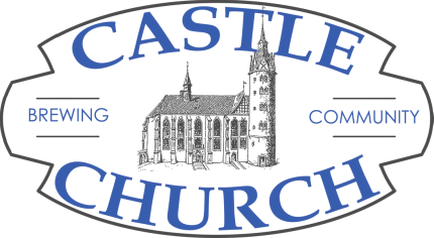|
Jared Witt l September 29, 2016 Quickly, without reading the story, what is the Parable of the Good Samaritan about? Most people in our culture, even if they don’t identify as Christian, have at least a passing familiarity with this passage from Luke 10:30-37. When asked what the story is fundamentally about, Christians and non-Christians alike will almost always say it’s about how we should treat one another. But if a nice little moral about being kind to one another were Jesus' only purpose in telling this tale, the story itself would be totally redundant. Just a few verses before it, the lawyer to whom Jesus addresses the parable (i.e. the antagonist in Luke’s narrative), has already stated how one should treat another person. Pretty much everyone in the Jewish world already agreed that that was plain for anyone to see in the Hebrew Bible, “You shall love the Lord your God with all your heart and with all your soul, and with all your strength, and with all your mind; and your neighbor as yourself." And Jesus thought no differently than anyone else on that point. So he gives the lawyer a proverbial pat on the head and a metaphorical cookie for answering correctly, and that should be that. Jared Witt l September 22, 2016 A close-knit, southern family is relaxing and playing checkers on grandma and grandpa’s front porch one warm afternoon in Coleman, Texas. Anxious that his daughter and her family might be getting bored, grandpa suggests they take a trip 53 miles north to the town of Abilene for dinner. “Sounds like a great idea,” says the Mom. "Whatever you and the kids want to do," says her husband, and they're off. It's Texas, so predictably, the trip is dusty and hot, and the restaurant is disappointing. The family returns to grandpa’s house several hours later exhausted and irritable but still attempting some polite sounds about what a fun excursion it was. But when grandma finally admits that it was less than enjoyable for her and that she only went along with it to keep everyone else happy, it sets off a chain reaction of honest confession. One by one, they all reveal that, while they themselves were having a perfectly pleasant time just relaxing on the porch, they each figured the trip to Abilene was what everyone else wanted. Jared Witt l September 15, 2016 Before Jesus was a religion, he was a person. Before his life was turned into a doctrine, it was a story. In two thousand years, we’ve all but completely managed to remake him into a moral or a dogma. It was sort of inevitable that we would, because such things are more usable to us than persons. It’s not at all clear what we're supposed to do with someone who was born into this world without so much as an invite and then did what he did, whether we approve or not. It's tough for us to shoehorn our own ego needs into his story. That's practically the main thing about stories, they just sort of happen a certain way. It is what it is. Outside of our own story, we don't get much say in the matter. Religions and doctrines, on the other hand, are much more useful in all kinds of ways. We can claim them as our own, hold them over the heads of others, and use them to remind ourselves that we’re right, for instance. But it seems there is something in Jesus which resists fully becoming an idea or an institution. Something which stubbornly goes on being his own person with or without our permission. Jared Witt l September 8, 2016 Sociologists are kind of a dry group. But if that's your thing, there is a fun chicken or egg debate going on right now about how the political “culture war” in our society got started. Did we build politically segregated institutions because we were divided, or did we divide because we built segregated institutions? In other words, do liberals grow urban gardens or do urban gardens grow liberals? Do conservatives build suburban megachurches or do suburban megachurches build conservatives? Whether the chicken came first or the egg, I think few would disagree that, one way or the other, we are now stuck and have to deal with a bunch of institutions that reinforce and amplify our human tendency to divide against each other. And for many of us, it’s not at all clear whether it’s the backwardness of the people on the other side of the chasm or the chasm itself that is the biggest threat to our society. This suspicion is maybe best communicated by my friend Jaimie’s t-shirt, which declares her a proud member of the “pizza party.” Jared Witt l September 1, 2016 Do you ever go back and watch a TV show from the 50s and early 60s? Kind of preachy, right? Whether you do it for nostalgia’s sake or, like me, you weren’t around at the time, I think many of us who have grown accustomed to modern Netflix and HBO series have sat through an episode of “The Andy Griffith Show” or “Leave It to Beaver” and had this thought: “Man, this isn’t so much a story as a sermon.” There is a reason for this, and I don’t think it is simply that they’re old. Shows and movies from a generation before them may not have had the profanity or the violent special effects that we see today, but they did not hesitate to wade into heavy and harry topics, which reflected real things that were going on in the world around them. “Citizen Kane" (1941) addressed the tower-of-Babel-like futility of material wealth and human ambition. “Gone with the Wind" (1939) is credited for making strides (for the time) in de-stereotyping how African-Americans are depicted on screen. “Duck Soup" (1933) used barbed satire to portray war as the lovechild of insecure leaders and groupthink-ing masses. |
Mashing in.On how Castle Church is stirring up a movement from a brewery in Florida. Archives
July 2018
|
Curated selection
- UK Online Casinos Not On Gamstop
- UK Online Casinos Not On Gamstop
- Casino Sites Not On Gamstop
- Best Non Gamstop Casinos UK 2025
- Casino Sites Not On Gamstop
- UK Online Casinos Not On Gamstop
- Non Gamstop Casinos UK
- Non Gamstop Casino Sites UK
- UK Casino Not On Gamstop
- Best Non Gamstop Casinos
- Online Casinos
- UK Casino Not On Gamstop
- Non Gamstop Casino
- Gambling Sites Not On Gamstop
- Migliore Casino Non Aams
- List Of UK Casino Sites
- UK Casinos Not On Gamstop
- Gambling Sites Not On Gamstop
- Best Non Gamstop Casinos
- Casino Not On Gamstop
- Betting Sites
- Non Aams Casino
- Migliori Siti Casino Non Aams
- Non Gamstop Casino
- Casino En Ligne
- Bitcoin Casinos
- Meilleur Site Casino En Ligne Belgique
- Meilleur Casino En Ligne Avis
- Site De Paris Sportif Bonus
- Paris Sportif Ufc Mma
- Siti Di Casino Online 2026
- Meilleur Casino En Ligne
- Casino En Ligne
- 50 Free Spin Senza Deposito
- Migliori Casino Online
- Meilleur Casino En Ligne France
- Nuovi Casino Non Aams
- Nouveau Casino En Ligne France
- Migliori Siti Casino Online
- Trusted Online Casino Malaysia

 RSS Feed
RSS Feed




